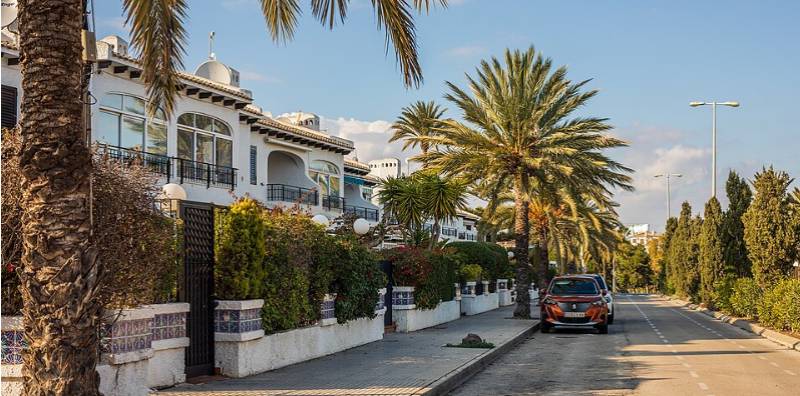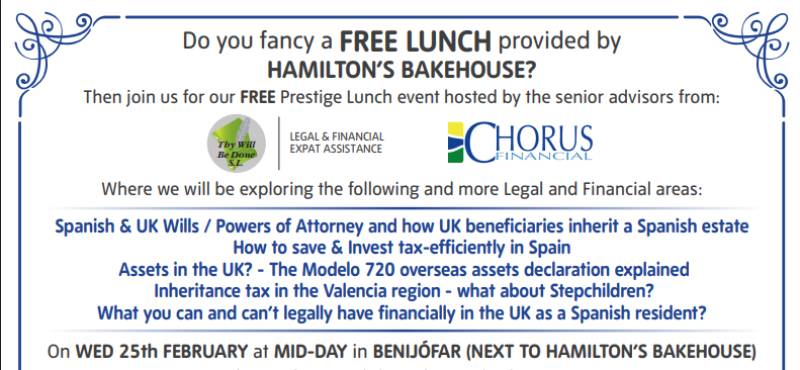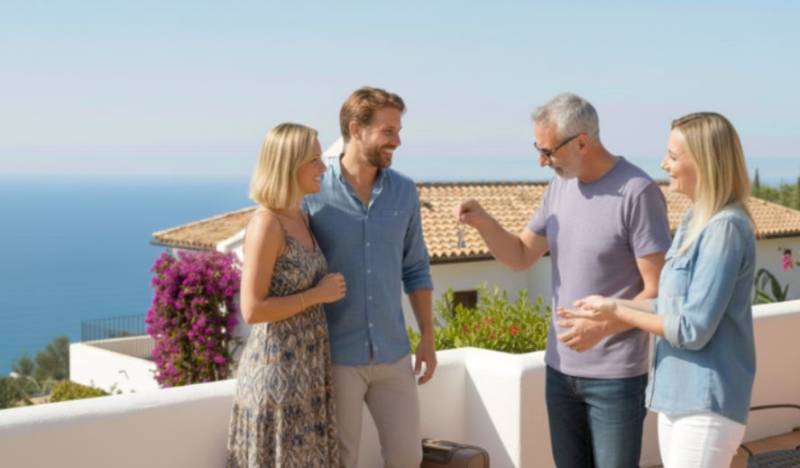- Region
- Vega baja
- Marina Alta
- Marina Baixa
- Alicante
- Baix Vinalopo
- Alto & Mitja Vinalopo
-
ALL TOWNS
- ALICANTE TOWNS
- Albatera
- Alfaz Del Pi
- Alicante City
- Alcoy
- Almoradi
- Benitatxell
- Bigastro
- Benferri
- Benidorm
- Calosa de Segura
- Calpe
- Catral
- Costa Blanca
- Cox
- Daya Vieja
- Denia
- Elche
- Elda
- Granja de Rocamora
- Guardamar del Segura
- Jacarilla
- Los Montesinos
- Orihuela
- Pedreguer
- Pilar de Horadada
- Playa Flamenca
- Quesada
- Rafal
- Redovan
- Rojales
- San Isidro
- Torrevieja
- Comunidad Valenciana
article_detail
Date Published: 21/02/2023
ARCHIVED - Lliber, the Alicante town hoping to provide a model for legalisation of British homes
ARCHIVED ARTICLE -
Hundreds of expats in the town of Llíber have been living in legal limbo for years, but now they’re hoping to be the first to show how others can turn the situation around
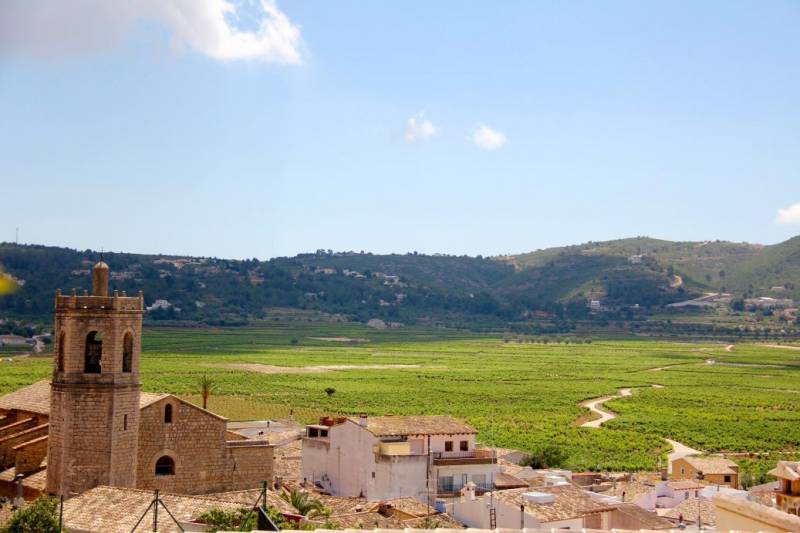
The sleepy Spanish village of Llíber in the province of Alicante, population just 1,000, covers an area of not more than 22 square kilometres, yet it is at the vanguard of a battle which expats on the Costa Blanca have been waging for over 20 years.
Over half the population of Llíber is estimated to be foreign residents – mainly Brits, Belgians and Germans – who came to this corner of Spain looking for a relaxing retirement getaway. But since at least 1999, they have been embroiled in a complex fight over the legality of their homes.
Living illegally
It all started when these expats bought up a series of new build properties that were made especially for them by promoters looking to take advantage of a burgeoning interest in northern Europeans who wanted to move out to sunny Spain.
The problem was that the homes were built without a license on green-belt land, and the developers took significant shortcuts when it came to planning procedures. Neither they, nor the real estate agents, nor the solicitors advising on the purchases, informed the foreign buyers (many of whom did not speak Spanish, or at least not well enough to be versed in the technicalities of housing law) about what they were getting themselves into.
And what they were getting into was a situation in which they could not get an occupational licence for their properties, which is a necessary requirement for being able to access basic services such as waste water facilities, and this drastically reduced the property values.
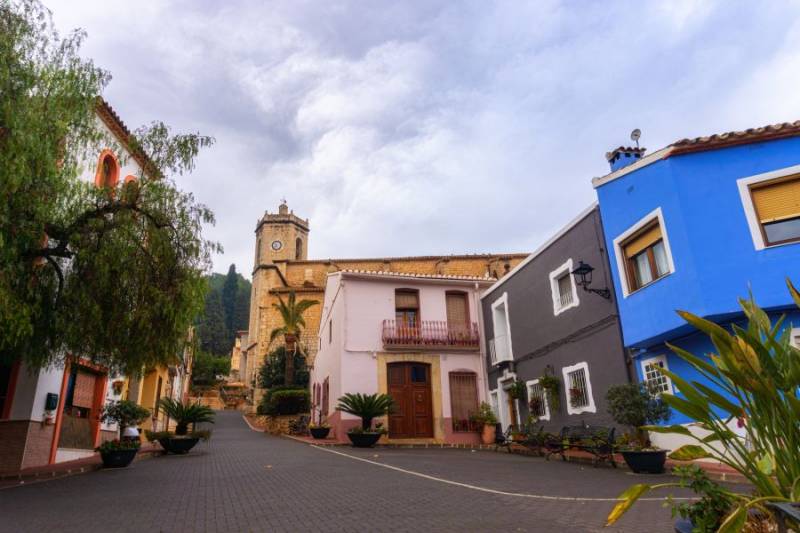
This situation was repeated up and down the Valencia Region, and in Llíber there was even a criminal case in 2009 that resulted in the former mayor of the town, José Mas Avellà, and the former municipal technical architect being arrested, along with 17 others, accused of building a total of 292 illegal homes between 1999 and 2003.
That group action was brought by high-profile lawyer Bernardo del Rosal on behalf of the Abusos Urbanísticos en Llíber No (AULN), a collection of foreign homeowners in the area who organised to bring their case to the attention of the courts and hopefully get some justice.
But while a certain amount of culpability was recognised on the part of the officials, that didn’t mean the nightmare was over for the residents of Llíber; they were still in a legal quagmire as far as their homes were concerned. In fact, the issue has been dragging on for so long that many of the original owners of these properties have passed away without ever seeing a resolution to a conflict that negatively affected their peace of mind and their day-to-day life in the village, since the issue has taken a toll on community relations between the Spanish and expat communities in Llíber.
A community divided
Many of the Spanish families in Llíber were the ones who sold the land to the developers in the first place, and those implicated in the criminal case still have connections to those in power at the Town Hall.
Adrian Hobbs, President of the AULN, purchased his home in 2001 and first realised there was a problem in around 2005 after struggling to get the necessary paperwork. “Many of the expats here avoid going into the village,” he says. “They don’t go to local shops and we don’t integrate at all.”
The ill feeling is palpable, something which Adrian says is a shame as the expats, who make up around 53% of the population, could do so much to help the tiny municipality.
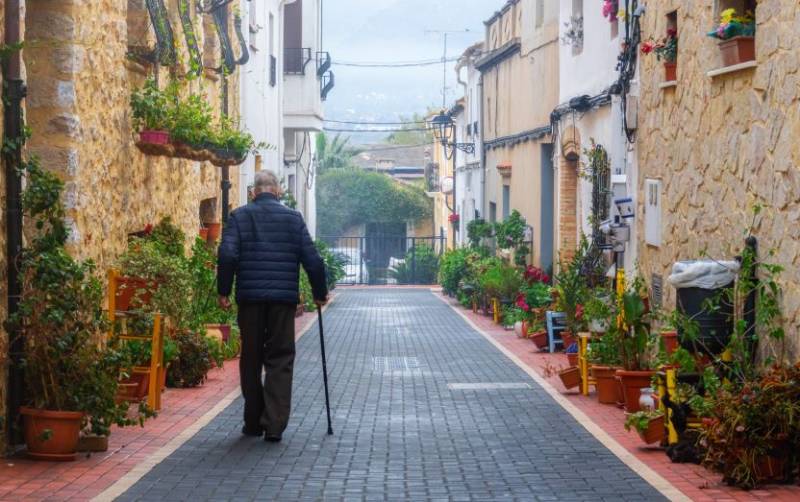
“They should use us – the expat community – because we have a wealth of experience living here: business leaders and great minds from all walks of life. We could help them figure out how to install solar power and other green energy solutions in the village, how to help the old people in this village with an ageing population, and how to give tourism a boost. After all, we’re tourists and so we know what people want when they come to visit.”
Real integration of the two communities and a solution to the problem of the illegal houses would undoubtedly be good for the village, and now, for the first time in over 20 years, many residents are feeling hopeful that a new region-wide initiative could finally put the whole issue to bed.
‘The light at the end of the tunnel’
The Valencia government is launching a project that hopes to provide new licences – separate from the occupation licence – to get these properties formally recognised and legalised. The requirements for getting the MIT are lower and less demanding than those for an occupation licence, and many of the homes have somehow managed to wangle themselves an occupation licence anyway, so it’s thought that the new process to apply for legalisation should just be a case of dotting the i’s and crossing the t’s.
And Llíber, which has had arguably one of the toughest times with this issue of any of the approximately 542 affected towns in the Autonomous Community of Valencia, is going full steam ahead with the new MIT project, which was officially presented at a meeting this February by John Kirby, the Commissioner of the MIT Project under the guidance of Vicente García, Director General of Town Planning for the Valencia Regional Government. So impressed were town locals with the potential of the project that is has the full support of both the AULN and the Town Hall.
The Mayor of Llíber, José Juan Reus Reus, says, “I am and have always been in favour of solving this problem for the residents of Llíber. Most of the houses already have their occupancy licence, so finalising the process should be quick and the owners can already make their application.”
He has assured the Town Hall will “help speed up this process” as much as possible by making it easy for expats who don’t speak Spanish to get the assistance they need in their own language.
“The technicians can attend to people in English,” he says, “and in many cases the process will be very quick and easy. With this, the residents of Llíber will be happy and at ease.”
Only the Town Hall knows exactly how many homes may be eligible for legalisation in Llíber, and the Brits living there are hopeful that the authorities have “the best of intentions” and will do everything in their power to solve the issue once and for all with “more transparency on the table”.
“I made a commitment to the Mayor to work with him to resolve this issue,” says Adrian. “All we’ve ever wanted is a legal house, and with this, we are closer than we’ve ever been.”
If everything goes as expected, the legalisation of homes in the community of Llíber could serve as a shining example for the other 500-plus towns across the Valencia region for how Ayuntamientos and expat associations can improve living standards for thousands, raise real estate prices and provide a real boost to local economies. And there’s every likelihood that, if successful, the same model could be replicated in other places in Spain affected by the same issue, such as the Costa del Sol.
“I’m very grateful to John and Vicente for coming to help us, and with their ambitious effort in driving this initiative,” continues Adrian. “These MIT licences are the light at the end of the tunnel for a lot of people because they give a definitive title to these houses.”
With luck, this will be the end of an issue that has blighted expats living in Llíber and beyond for decades, and those affected can finally put it behind them and move on with their lives.
“I’m sick of it, I don’t want to have to talk about it ever again,” concludes Adrian.
staff.inc.ali
Loading
Sign up for the Spanish News Today Editors Roundup Weekly Bulletin and get an email with all the week’s news straight to your inbox
Special offer: Subscribe now for 25% off (36.95 euros for 48 Bulletins)
OR
you can sign up to our FREE weekly roundup!
Read some of our recent bulletins:
Discount Special Offer subscription:
36.95€ for 48 Editor’s Weekly News Roundup bulletins!
Please CLICK THE BUTTON to subscribe.
(List price 3 months 12 Bulletins)
Read more stories from around Spain:
Contact Murcia Today: Editorial 000 000 000 /
Office 000 000 000











